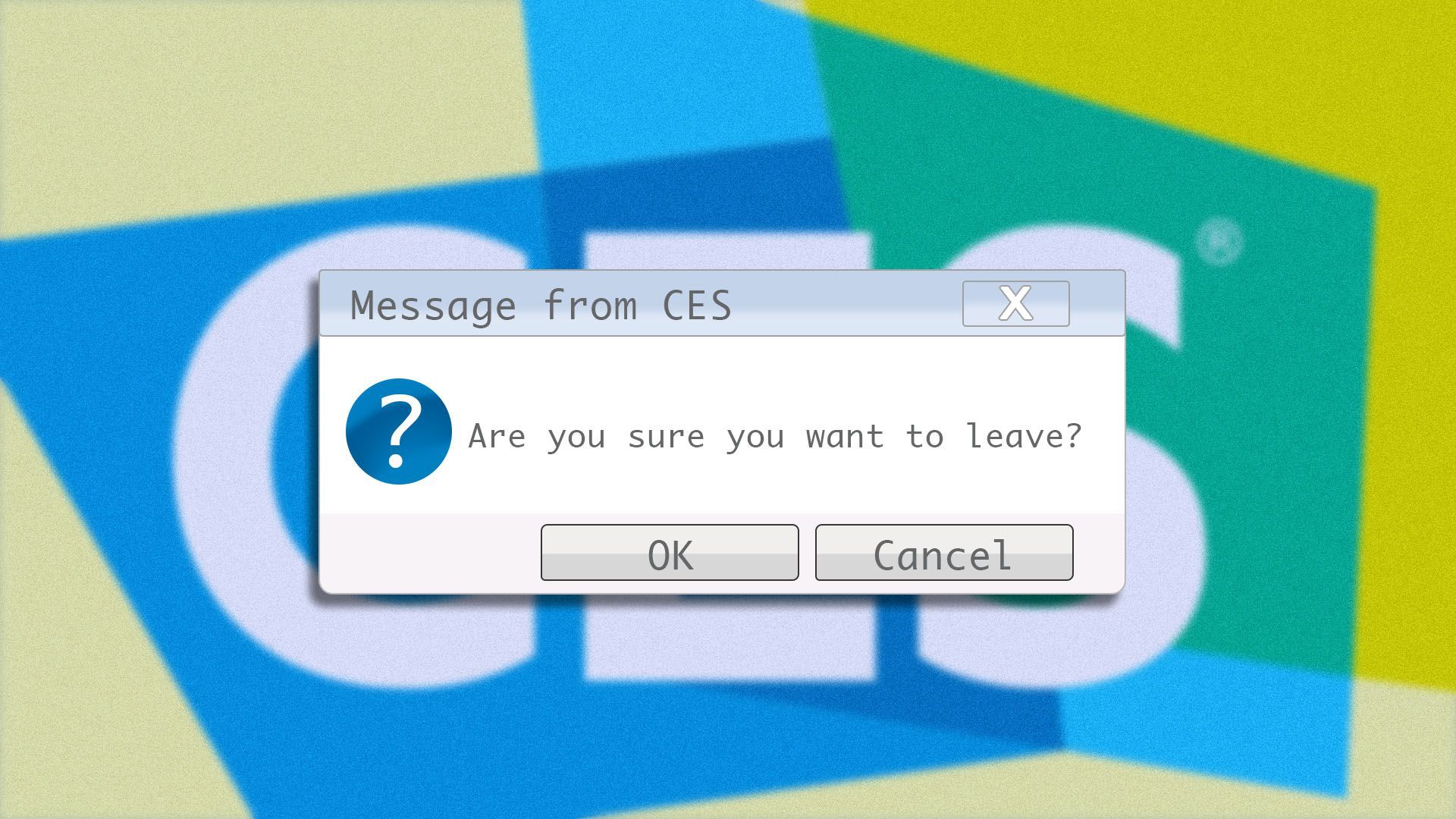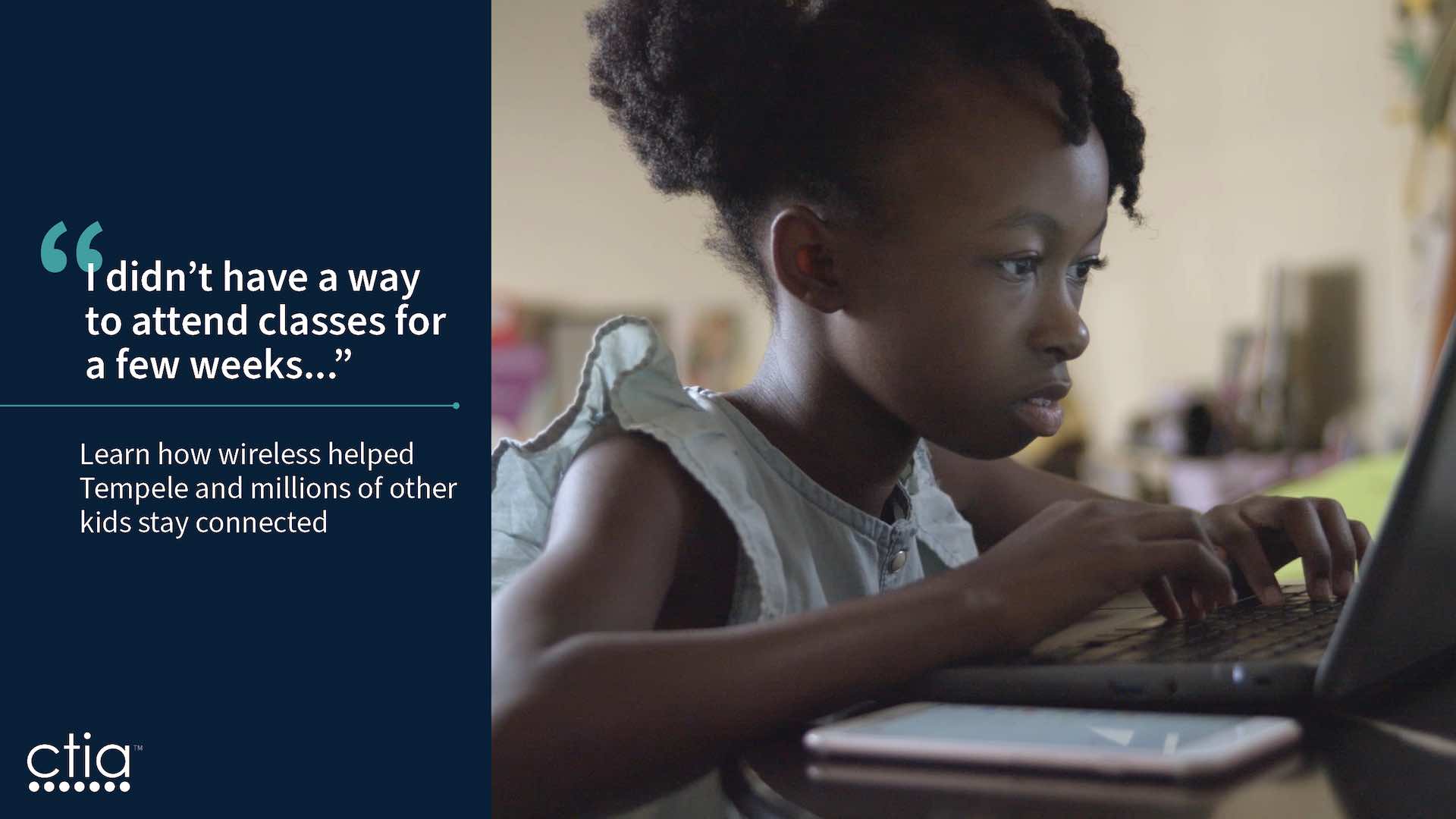| | | | | | | Presented By CTIA | | | | Login | | By Ina Fried ·Jan 19, 2021 | | Sorry to miss you yesterday. I was commemorating Martin Luther King Jr. Day — and also cuddling with my parents' new dogs. They really are cute. I'll post pictures in After you Login later this week. (Yes, that was a tease.) Situational awareness: Microsoft is partnering with carmakers to invest $2 billion in GM's Cruise, valuing the self-driving car unit at $30 billion and setting up Microsoft to provide cloud services to help power Cruise's autonomous vehicles. Today's Login is 1,385 words, a 5-minute read. | | | | | | 1 big thing: CES was largely irrelevant this year |  | | | Illustration: Sarah Grillo/Axios | | | | Forced online by the pandemic and overshadowed by the attack on the Capitol, the 2021 edition of CES was mostly an afterthought as media's attention focused elsewhere. Why it matters: The consumer electronics trade show is the cornerstone event for the Consumer Technology Association and Las Vegas has been the traditional early-January gathering place for the tech industry. Details: Plenty of tech companies announced their latest wares last week, including new TVs, laptops and appliances from Samsung, LG, Lenovo, Acer and others. (You can see our wrap-up of highlights here.) - There were just a lot fewer people paying attention, especially among the non-tech press, whose focus was decidedly elsewhere.
Between the lines: While keynotes were broadcast online and organizers of both the main show and side events did their best to replicate things virtually, much of the show's draw is in getting to meet people face to face and touch and use the latest products. - There were already concerns the show had grown too large. While this can be a sign of success, it's also the case that conventions can grow too unwieldy and eventually fade from prominence. Just ask the organizers of CeBit and Comdex.
Our thought bubble: By going virtual, CES was able to potentially market itself to a bigger audience. But holding attention is tougher for virtual events, especially those that stretch over days. - When people force themselves on to a packed airplane and overpay for a couple nights at the Wynn, they are likely to be in full CES mode from morning to night.
- At home, it's easier to move on to other things, especially given everything that's going on right now.
Yes, but: There may be a bump in demand once travel is safe, which will be an important opportunity for CES to reassert itself. - Show organizers also deserve credit for increasing the diversity of their keynote lineup, with three female CEOs speaking on Tuesday alone. It was just a couple years ago that organizers scheduled an event where all the corporate keynotes were from men.
What they're saying: CTA said more than 2,000 companies launched products during the digital event and that it looks forward to a hybrid digital/in-person event anchored in Las Vegas next year. - "The digital CES 2021 was not meant to replace or recreate an in-person tradeshow. In-person events will remain key to furthering business and economic growth around the world," a CTA representative said in a statement to Axios.
|     | | | | | | 2. Parler shows signs of life | | Far-right-friendly social network Parler is beginning to resurface after going dark last week following a series of bans by Google, Apple and Amazon, Axios' Kyle Daly and Sara Fischer report. The big picture: By tapping service providers that are friendly to far-right sites, Parler — home to a great deal of pro-insurrection chatter before, during and after the Capitol siege — may have found a way to survive despite Big Tech's efforts to pull the plug. Shortly after the bans, Parler switched its domain registration to Epik, a provider that has in the past revived other digital havens of the far right, including Gab, 8kun and neo-Nazi site the Daily Stormer. - Observers noticed over the weekend that online records indicate that Parler is also relying on some level of infrastructure support from DDoS Guard, a Russian provider of web hosting and related services.
Driving the news: Over the weekend, Parler CEO John Matze posted to the site a message saying, "Hello world, is this thing on?" - Below Matze's post was a message from the company promising "to resolve any challenge before us and ... welcome all of you back soon."
Details: In an interview with Fox News Sunday, Matze said, "I'm confident that by the end of the month, we'll be back up." - He added that despite the bans, no Parler employees have quit yet.
Our thought bubble: The newfound reliance on a Russian firm is sure to spin up conspiracy theories that the resurrected Parler will be a Kremlin front. Reality check: That's probably not the case. - But there are deeply serious security concerns raised by any site relying on Russian-owned servers.
- And Parler running to Russia to come back online would be just the latest development in a growing clash of values between Silicon Valley and authoritarian regimes that have a vested interest in keeping disinformation and destabilizing rhetoric flowing in the U.S.
The catch: If Parler can come fully back online in short order, that would undermine antitrust claims it has made against Amazon for knocking out its back end over concerns about violent rhetoric. Meanwhile: The Axios tech team was busy over the weekend covering other developments related to fallout from the attack on the Capitol and this week's looming inauguration. |     | | | | | | 3. FBI is tracing Capitol rioters' digital trail | | Capitol rioters, eager to share proof of their efforts with other extremists online, have so far left a digital footprint of at least 140,000 images that is making it easier for federal law enforcement officials to capture and arrest them, Axios' Sara and Ashley Gold report. The big picture: Law enforcement's use of digital tracing isn't new, and has long been at the center of fierce battles over privacy and civil liberties. The Capitol siege is opening a fresh front in that debate. Between the lines: A huge part of the recruitment process for both foreign and domestic terrorists is capturing imagery of foul play and using it later to recruit new members. But advances in technology make it easy for perpetrators to accidentally out themselves to law enforcement in the process. Details: In a report issued Friday, FBI Washington Field Office assistant director in charge Steven D'Antuono said the FBI has so far identified more than 270 suspects involved in criminal activity in and around the Capitol, in large part thanks to incoming tips that help match pictures and videos uploaded online from the attacks. - "In the past week alone, we've received nearly 140,000 photos and videos from the public," he said. The FBI has now set up a portal for people to submit tips about who may have been involved in the attacks, and who may be plotting more.
Be smart: The feds aren't saying so far whether any arrests or investigations have been helped along by facial recognition. The technology could prove valuable in fingering yet-to-be-identified rioters, but it raises serious concerns about privacy, ethics and accuracy. - The FBI's use of facial recognition to surveil Black Lives Matters protesters last summer drew outrage.
Yes, but: Some researchers, per Protocol, worry that outing rioters publicly via their social media uploads could also have a damaging effect, especially if they are wrongfully accused. |     | | | | | | A message from CTIA | | Wireless is connecting America's students | | |  | | | | With Covid-19 closing schools, America's wireless industry is keeping kids connected – offering devices and data plans so more than 2 million children can continue learning. Learn more about the wireless industry's continuing efforts. | | | | | | 4. Microsoft's GitHub apologizes for controversial firing |  | | | Illustration: Eniola Odetunde/Axios | | | | Microsoft-owned GitHub is apologizing for firing an employee who told his co-workers to stay safe from "Nazis" after the U.S. Capitol was breached and the company has offered the job back to the worker, Axios' Margaret Harding McGill and I report. Why it matters: The firing sparked controversy among the employees, and led to the resignation of GitHub's human resources head Saturday. What happened: GitHub reversed course after an independent investigation into the firing "revealed significant errors of judgment and procedure," according to a company blog post. - The employee's warning was criticized by a colleague who was offended by the reference to Nazis, according a report in the Verge. The firing was first reported by Business Insider.
What they're saying: "Employees are free to express concerns about Nazis, antisemitism, white supremacy or any other form of discrimination or harassment in internal discussions," GitHub said in the post. "We expect all employees to be respectful, professional, and follow GitHub policies on discrimination and harassment." |     | | | | | | 5. Take note | | On Tap - Netflix reports earnings after the bell on Tuesday, while Intel and IBM are slated to report earnings on Wednesday. (Intel said it would beat its prior guidance when it announced its CEO change last week.)
Trading Places - Zuora hired former Cisco and Microsoft executive Sri Srinivasan to be its chief product and engineering officer.
ICYMI |     | | | | | | 6. After you Login | | It's an oldie but a goodie. Check out these quadruplet babies in a moment of shared amusement. The quads are now almost of drinking age; Huffington Post caught up with them in 2017. |     | | | | | | A message from CTIA | | Wireless is connecting America's students | | |  | | | | With Covid-19 closing schools across, America's wireless industry is keeping kids connected – offering devices and data plans so more than 2 million children can continue learning. Learn more about the wireless industry's continuing efforts. | | | | | | Axios thanks our partners for supporting our newsletters.
Sponsorship has no influence on editorial content. Axios, 3100 Clarendon Blvd, Suite 1300, Arlington VA 22201 | | | You received this email because you signed up for newsletters from Axios.
Change your preferences or unsubscribe here. | | | Was this email forwarded to you?
Sign up now to get Axios in your inbox. | | | | Follow Axios on social media:    | | | | | |






No comments:
Post a Comment